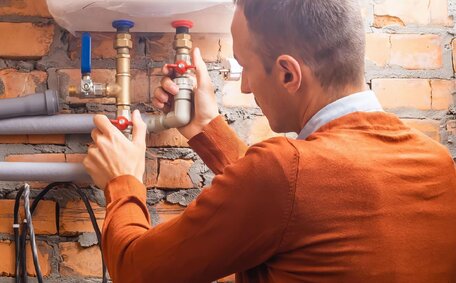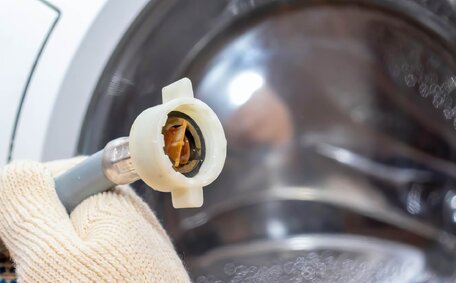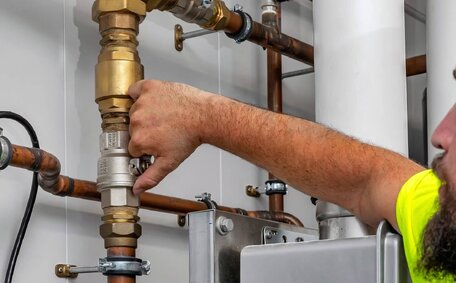Introduction to Hot Water System Advancements
Significant advances in hot water system technologies have greatly improved efficiency, slashed operating expenses, and reduced environmental impact, marking a distinct advantage over older models.
Tankless water heaters, utilising cutting-edge heating technology, extract ambient heat, crucial for efficient functioning. Heat pump water heaters are particularly noteworthy, cutting energy use by up to 60% compared to traditional electric models via direct energy transfer.
Tankless water heaters, also known for providing instant hot water, have also grown in popularity. Compact and swift, these units eliminate the need for a separate water tank by heating water continuously as it flows through the system. By supplying hot water on demand, tankless heaters negate the standby energy losses seen in storage tank systems.
Solar water heating systems use solar panels to harness the sun’s power, providing an eco-conscious way to heat your home’s water. This renewable energy source can supply 50-80% of a household’s hot water needs. Cutting-edge integrated systems now merge solar power with heat pump or gas boosters, ensuring hot water availability even during overcast conditions.
Contemporary gas-fired tankless models feature advanced modulation, precisely aligning heat output to actual demand, hence increasing efficiency by avoiding the wasteful on-off cycling prevalent in conventional gas storage systems.
Linking hot water systems to smart home technology empowers homeowners to maximise efficiency, allowing them to program the system to heat water with solar energy during peak sunshine hours or utilise off-peak rates at night.
As energy prices climb and environmental consciousness grows, diverse hot water heater technologies offer Australians greener, cost-saving comfort and convenience.
Going Tankless with On-Demand Water Heaters
The main advantage of tankless heaters is their ability to save energy while rapidly heating cold water. Tankless models eschew the energy loss associated with constantly heating and reheating water in tanks. Tankless models represent some of the best hot water options being 24-34% more efficient than conventional electric storage tank heaters.
Space efficiency is another advantage, with compact tankless units freeing up room and offering versatile placement options such as wall mounting near hot water points of use.
The convenience of continuous hot water on tap is also a major perk. Tankless heaters integrate with a flow hot water system, providing a continuous hot experience, never running out during long showers or when multiple fixtures are in use.
On the downside, tankless heaters come with higher initial installation costs, ranging from $1,000 to $3,000, varying by fuel type and flow rate.
Flow rate limitations can also be an issue. Electric tankless heaters may struggle to supply enough hot water for multiple sinks or showers running simultaneously. Gas hot water system models offer higher flow rates valuable for homes requiring abundant hot gas water of 7-9 gallons per minute (25-34 litres per minute), while electric tankless are limited to around 4 gallons per minute (15 litres per minute).
Overall, tankless water heaters provide an energy efficient, endless supply of hot water on demand. For those seeking space savings, energy efficiency, and continuous supply, the latest water heater technology in tankless models presents an attractive option despite their higher upfront costs.
Heat Pump Water Heaters Surpass Traditional Models
Heat pump water heaters represent one of the most promising advancements in hot water technology. Using principles similar to a refrigerator in reverse, Heat pump heaters absorb and transfer heat from the ambient air to your water supply. This trait enables the use of significantly less energy than conventional electric systems, markedly boosting efficiency.
Heat pumps boast exceptional efficiency; extracting over 2 kW of heat from the air for every 1 kW of electricity consumed, they reach efficiency levels over 300% thanks to advanced energy transfer technology, far surpassing the roughly 95% efficiency of top-tier electric resistance water heaters.
Heat, facilitated by a heating element, is drawn from the surrounding air into the heat pump system’s evaporator. The refrigerant then compresses this heat, intensifying it to heat water in an integrated storage tank or on demand via a heat exchanger.
Leveraging free ambient heat, heat pump heaters reduce electricity consumption, providing up to 66% savings in running costs and trimming annual energy bills by $300 to $500.
In addition to significant energy savings, heat pump systems are eco-friendlier, yielding lower greenhouse gas emissions and reducing waste with their longevity of over 15 years, mitigating frequent replacement of conventional tanks.
Albeit with an upfront cost between $2,000 and $4,000, heat pump heaters offer unparalleled efficiency for home hot water. These systems are a prudent choice for eco-aware homeowners intent on reducing energy bills and environmental impact.
Harnessing the Sun with Solar Hot Water
Solar hot water systems provide an eco-friendly, efficient means of harnessing the sun’s renewable energy to heat water. Solar collectors, usually roof-mounted panels, absorb heat from sunlight and transfer it to water circulated through the collectors.
This pre-heated water is then stored in a solar storage tank ready for use. Gas or electric booster heaters within the storage tank top up the water temperature on overcast days when solar energy yield is reduced.
In suitable sunny climates, solar hot water units can meet 50-80% of household hot water needs. The exact percentage depends on factors like local weather patterns, system size and hot water usage.
Powered by free solar energy, solar hot water systems not only reduce home utility bills by decreasing reliance on electricity or gas but are also 22% more efficient than electric and 14% more than gas water heating alternatives.
As a renewable energy source, solar also brings environmental benefits. Solar hot water systems produce 70% fewer greenhouse emissions than electric hot water units. This equates to around 1 tonne of avoided carbon dioxide per year for the average home.
Solar hot water systems require an upfront cost of $5000 to $8000, but offer long-term savings from free solar energy, underlining their cost-effectiveness.
In suitable sunny climates, solar hp>Hybrid hot water systems combine multiple technologies into one system for maximised efficiency and versatility. By integrating different heat sources like solar power and heat pumps, hybrid systems aim to utilise the as needed to further boost water temperature. The solar component provides much of the heating, while the heat pump steps in on cloudy days or during peak demand.
Combining solar power with natural gas is a smart strategy; solar preheating can cut gas usage for heating water by 50-75%, with the gas system providing backup when solar power is insufficient.
These hybrid water heating configurations allow homeowners to take advantage of renewable solar energy while having the reliability of gas or heat pump backup. This caters well to households with significant hot water needs.
Hybrid solar heat pump systems, thanks to their exceptional efficiency, can slash water heating energy usage by up to 80%, translating into substantial annual savings on utility bills.
Although hybrid systems with heat pump technology carry premium price tags, typically $6,000 to $10,000 installed, government rebates of up to $1,000 are available, reducing the initial cost.
For eco-conscious homeowners who want to maximise energy efficiency and harness renewable power, hybrid hot water systems provide the ultimate solution. Combining complementary technologies allows them to deliver both superior performance and flexibility to handle varying hot water demand.
Smart Water Heaters Adapt to Usage
Smart water heaters represent another technological leap, incorporating digital technology to optimise efficiency and adapt to household hot water usage patterns.
Connected to home wifi networks, these internet-enabled heaters quickly heat up and receive software updates to refine their performance. Learning algorithms study hot water usage and adapt heating schedules to match demand. This avoids wasting energy heating water at times when it’s not needed.
Sensors provide hot water usage data to help the system continually tailor its operation. The units even predict times of peak demand based on observed behavioural patterns within the home.
Smartphone apps enable remote adjustments to water heater settings for added convenience, such as raising the temperature ahead of an early return home from holidays.
Pairing smart technology with efficient heat pump water heaters can enhance energy savings. In an Australian trial, households with smart heat pump systems used 50% less energy for hot water than those with traditional electric systems.
Beyond operational savings, conveniently controlling hot water heating via a smartphone app appeals to tech-savvy homeowners. As home energy management systems advance, smart water heaters are set to become key components.
While smart water heater costs are currently high at around $4000 to $6000 installed, they offer a glimpse into the convenience and efficiency gains technology can bring to hot water systems.
Government Incentives for Eco-Friendly Systems
The Australian government offers a range of rebates and incentives to encourage households to install energy-efficient and eco-friendly hot water systems.
The Small-scale Renewable Energy Scheme (SRES) is particularly appealing, rewarding homeowners with Small-scale Technology Certificates (STCs) for installing eligible solar hot water or heat pump systems, translating into direct financial rebates.
Homeowners in Saint Marys who install gas or electric-boosted solar systems could receive 18-20 STCs, valued at approximately $25-$30 each, totalling $450-$600 in rebates. Heat pump systems can garner about 33 STCs, equating to nearly $825 in savings.
Additional rebates may also be available through state government schemes. For example, the NSW Government’s Empowering Homes programme currently offers $500 rebates for installing heat pump water heaters. So Saint Marys residents could be eligible for over $1000 in combined federal and state rebates.
The NSW Government also offers no interest loans of up to $14,000 via its Sustainability Advantage programme to cover the upfront costs of energy efficiency improvements like hot water system upgrades.
Given these substantial incentives, it’s an opportune moment for Saint Marys residents to benefit from eco-friendly hot water systems that reduce energy consumption, save money, and help protect the environment.
New System Installation Considerations
Choosing a new hot water system demands meticulous planning. Saint Marys homeowners should consider several essential factors before replacing their current setup:
Space Requirements
Consider the physical footprint of the new system and ensure adequate space is available, both where the unit will be located and for connecting pipework. Tankless systems require less space than storage tanks. Outdoor and wall-mounted units are options for tight areas.
Plumbing Compatibility
Ensure your existing plumbing is compatible with the new system, in terms of pipe sizing, gas line capacity, venting and water pressure. Some homes may require plumbing modifications to accommodate the new heater.
Professional Installation
Have your new hot water system installed by qualified professionals. This ensures correct configuration for optimal efficiency and safety, while also validating warranties. Licenced plumbers can also handle any necessary plumbing alterations.
Energy Efficiency Upgrades
A new hot water system presents a great opportunity to enhance home energy efficiency. Consider upgrades like insulating pipes, low-flow showerheads, solar pre-heating and smart technology.
Assistance from Saint Marys Plumbing
Our expert plumbers are highly recommended and provide same day advice tailored to your household’s needs when selecting and installing a new hot water system in Saint Marys. Book service with us today to explore the many options available for reliable, energy-efficient hot water.
Choosing a new hot water system demands meticulous planning.
Consider the physical footprint of the new system and ensure adequate space is available, both where the unit will be located and for connecting pipework.






